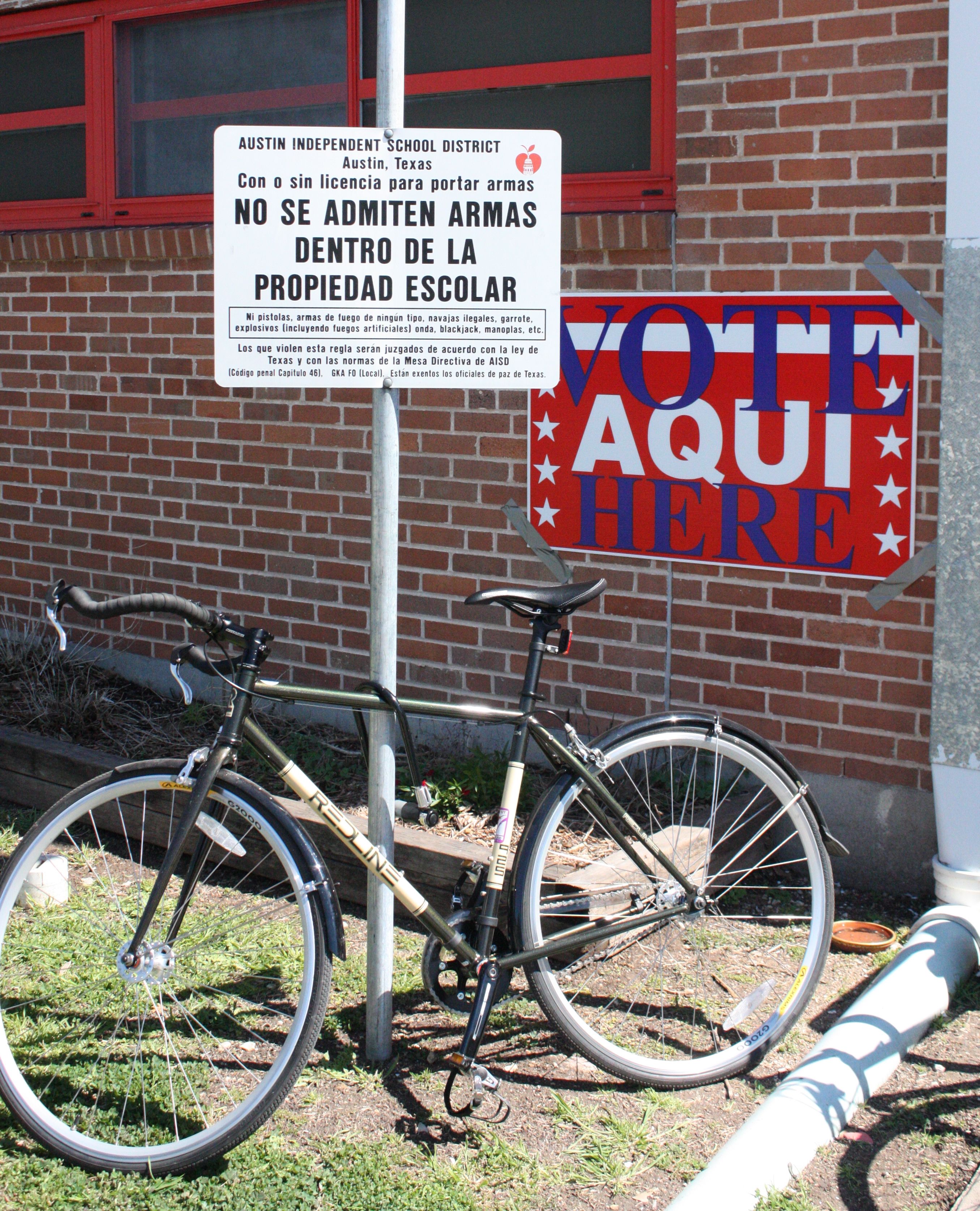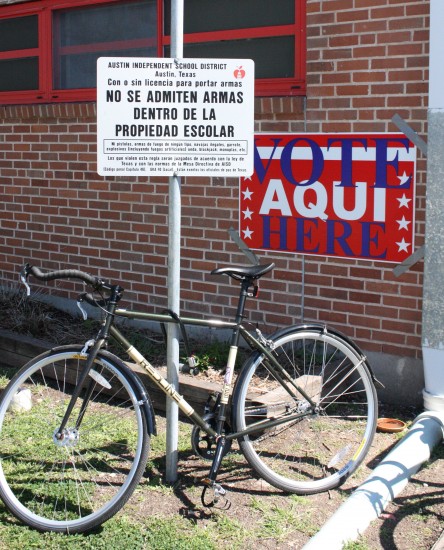Note: I updated this post with some additional information about Latino party affiliation.
Several recent surveys reveal Latino voters to be some of the most stalwart supporters of environmental protections, including robust climate solutions.
Most recently, a 2012 Colorado College “State of the Rockies Conservation in the West” poll found that “across multiple issues, Latino voters express stronger pro-conservation views than their Anglo counterparts.” The survey was conducted in Arizona, Colorado, Montana, New Mexico, Utah, and Wyoming in January.
The Colorado College survey also found:
- Of the 336 Latino voters polled, 87 percent said they believe it is possible to protect land and water and have a strong economy with good jobs at the same time, compared to 78 percent of the general public.
- More than 8 in 10 view air pollution as a serious problem and see the Clean Air Act and other environmental laws as “important protections rather than burdensome regulations.”
- Eight in 10 Latino voters also say they want to “reduce consumption of coal, oil, and gas by expanding use of renewable energy.” (Compared to two-thirds of the general public).
- Western Latino voters see renewable energy as a job creator—78 percent told pollsters that “increasing the use of renewable energy will create jobs in their state.”
- 81 percent of Hispanics support the EPA’s actions to curb pollution from coal-fired power plants and from other fossil fuels. This compares to 70 percent among Western voters overall who support the EPA’s actions.
Pollster Dave Metz said the survey dispels the notion that ethnic communities, particularly hard hit in the economic downturn, are “more willing than others to let the environment take a back seat to [the] economy.”
These findings jibe with research conducted in 2010. A series of polls commissioned by the National Latino Coalition on Climate Change in three “swing states”—Florida, Nevada, and Colorado—found that the vast majority of Latino voters not only supported climate and energy policies and agree strongly that we can both reduce global warming pollution and expand jobs and economic prosperity at the same time. They also say it is our moral obligation to find solutions for global warming (89 percent in Florida, 86 percent in Nevada, and 80 percent in Colorado).
And in overwhelming numbers, Latino voters in these states say they’d be willing to make sacrifices and changes to do so (91%, 91%, 83%).
More highlights:
- Big majorities support policies that would establish a renewable requirement (94%, 93%, 87%), higher energy efficiency standards (96%, 89%, 87%), and cap carbon pollution (89%, 88%, 78%).
- Majorities understand climate change is the result of man-made pollution—around 70 percent in each state. Compare that to the national average who “believe” climate change is human-caused: 50 percent.
- Despite the dire economy, at least 85 percent of Latino voters in each state say they would be willing to pay higher energy prices in order to increase the amount of our energy needs met by renewable energy sources. (Between 6 and 15% said they were unwilling to pay anything. And, it’s not always easy to compare across survey instruments especially when questions are phrased slightly differently, but in another study—by the Brookings Institution in 2011—fully 41% of the general American population said they weren’t willing to pay and 21% of Canadians were unwilling to pay.)
- More than three-in-five in each state say that efforts to reduce global warming pollution by switching to clean energy will create new American jobs, rather than cost us jobs or not do anything in terms of jobs in this country (66%, 72%, 64%). The national average measured by Yale/George Mason in November 2011 is 54 percent.
- Strong majorities also agree that solving global warming problems now will cost less money than if we wait until later (71%, 91%, 85%).
These findings also reinforce an ongoing study by Yale and George Mason Universities (with data collected in 2008 and updated for an in-depth report in early 2010). In 2008, 66 percent of US Latinos considered climate change a “high” or “very high” priority for the president and Congress to address, compared to just 48 percent of non-Latino whites. (In 2008 Latinos showed the highest intensity of support for EPA regulation of carbon dioxide as a pollutant and were far more likely to support a cap and trade system than the national average—70% total support among Hispanics vs. 53% national average.)
There’s lots of conjecture as to why Latino voters express such strong support for environmental protections and, in many cases, express greater support than the general US population for climate and energy policies.
It should be noted that Latino voters lean Democratic. According to the Pew Hispanic Center, exit polling in 2010 indicated around “60% of Latino voters supported Democratic candidates in House races while 38% supported Republican candidates.”
Here’s a breakdown by party for the Colorado College surveys:
But there may be reasons for pro-environmental views beyond party affiliation.
Maite Arce, executive director of the Hispanic Access Foundation, said in a recent teleconference on Latinos and climate change (and reported by Fox News Latino) that Latino voters’ strong pro-conservationist beliefs are in line with their cultural values: “For Latinos, family is really critical, health is really critical,” she said. “There’s just a strong connection in our heritage to the outdoors, wildlife, land, air. I think the experience of grandfathers and grandmothers [back] in home countries…are definitely still ingrained in who we are. [It’s] the connection to the land.”
Javier Sierra, a Sierra Club columnist who writes at Huffington Post, describes this connection as “amor por el terruño, or loosely translated, our love of country, an often spiritual connection with the land that sees us grow, that nurtures us, that gives us life.”
And “connection to the land” is often both spiritual and literal. Roberto Lovato, co-founder of the Latino advocacy organization Presente.org, points out that US Latinos live in rural areas in bigger numbers than non-Latino whites. “The poor, immigrant and agricultural workforce is more close to the land,” he said.
Another reason may be strong ties outside the US. As Adrianna Quintero of the Natural Resources Defense Council said to teleconference listeners, “Latinos are less likely to question climate change because they have more contact with countries in Latin America that lie closer to the equator, where the repercussions are more evident.” As she put it: “They live it. These impacts are very real and they’re costing lives and they’re costing jobs.”
“Costing lives” may sound like an exaggeration, but according to a 2011 study by the National Latino Coalition on Climate Change, Natural Resources Defense Council, the Center for American Progress and the National Wildlife Federation, half the Hispanics in the United States live in counties that frequently violate air pollution standards and are therefore exposed to a greater risk of breathing polluted or harmful air. Exposure to air pollution “can aggravate preexisting health problems—especially respiratory problems like asthma.” This is serious for Latinos. The study showed that in 2008, about 4.7 million Hispanics had been diagnosed by a physician with asthma, and Latinos have three times the chance of dying from that illness as other racial or ethnic groups do.
For whatever reasons, or maybe all these reasons, and despite the same old partisan divisions among Latinos that haunt climate attitudes across the entire voting population, these opinions aren’t to be scoffed at when it comes to the ballot box. As pollster Dave Metz points out, Latinos are a growing and politically-significant constituency in the upcoming elections, and, he says, “the Latino population as a whole is overwhelmingly younger. [And for] registered voters, it is a younger population. It’s indicative of where the region is headed. This is a rising segment of the electorate.”
In California, pro-conservation, pro-energy reform, and anti-pollution attitudes among Latino voters appear to represent a mighty force. For example, as Kathleen Rogers reported at Huffington Post, in November 2006, massive Latino turnout in California voted 84 percent in favor of the largest water/park bond in US history. “The stellar Latino turnout carried the measure to victory,” she says, “even though it lost the white vote.” (That was Proposition 84.)
And, exit polling in 2010 indicated that areas with high percentages of Latinos voted overwhelmingly against Proposition 23, which would have shackled air pollution control laws to unemployment rates, essentially killing California’s showcase climate policy. Even though the fight about Prop 23 was not framed as a battle in the war on climate change per se, it did focus on health concerns about pollution, the tyranny of Big Oil, and the emerging clean energy economy in California. “In East Los Angeles, where Latinos comprise 97 percent of the population,” Rogers writes, “Prop. 23 was defeated by a margin of more than 3 to 1.”











morgan ahouse
Nice. Thanks Anna.
Tony DeFalco
Anna,
Thanks for sharing this. Angela Park posted it on the Environmental Professionals of Color Facebook site and I’ve been sharing it widely.
Adelante!
Tony
RonaldBainy
At least 53 dead, dozens injured in truck crash in south Mexico, authorities say; one of worst-ever death tolls for migrants